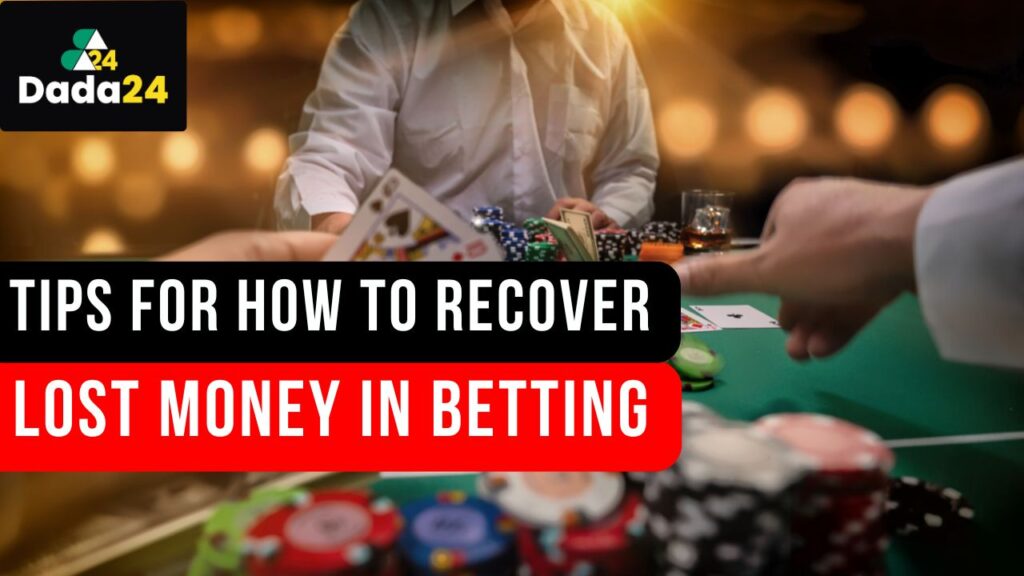While the thrill of gambling is undeniable, it’s important to be mindful of the potential downsides, such as the risk of losing money. So how to recover lost money in betting? For this, you need to approach the situation with a plan that emphasizes responsibility, mental resilience, and smart financial management. In this article, we’ll explore strategies to help you recover lost funds, avoid common pitfalls, and develop positive gaming habits.
Assessing Your Losses
Gaining Insight into the Scope of Your Financial Setback
The initial step in reclaiming your gambling losses is to conduct a thorough examination of your financial standing. This involves calculating the total amount lost and evaluating it against your overall financial health. Take a close look at your previous gambling activities, bank statements, and any loans related to the game. To devise an effective recovery strategy, it’s crucial to have a clear understanding of where exactly you’re incurring losses.
When evaluating your losses keep the following factors in mind:
- Amount Lost: This reveals the precise sum you lost through gambling, including all related expenses like interest on borrowed funds.
- Impact on Savings and Investments: Assess how your losses have affected your assets, investments and retirement savings.
- Debt Evaluation: If you borrowed money for gambling purposes review your current debts and their respective interest rates.
Emotional and Mental Effects of Gambling Losses
Losing a bet can take a significant emotional toll, leading to feelings of anxiety, remorse and embarrassment. It’s essential to acknowledge these emotions and understand how they might influence future decisions.
When it comes to losing bets people often experience a range of emotions such as regret and guilt for placing themselves in that situation or feeling remorse for making choices that led to the loss. They may also feel anxious and stressed about how the loss could affect their personal life, family dynamics, or financial stability.
Shame may also arise especially if the gambling loss impacts their reputation or relationships. It’s important to recognize and address these feelings to move on. Seeking support from a therapist, counsellor or support group can be beneficial in managing the emotional aftermath of a loss.
Developing a Recovery Plan
Setting Realistic Financial Goals
When recovering from gambling losses, it’s crucial to establish financial goals. Set clear, attainable objectives that align with your current situation. For instance, if you have debts, your main focus should be on tackling the loan with the interest rate first.
Break down your goals into manageable steps, like determining a specific monthly amount to save or cutting unnecessary expenses. Setting deadlines for each goal and making them measurable will help you stay motivated and on track during the recovery process. By setting goals you can gradually regain control over your finances and work towards achieving lasting financial stability.
Here are some examples of recovery goals;
- Paying Off Debt: Create a plan to eliminate all debts ranging, from high-interest loans to gambling-related costs.
- Rebuilding Savings: Set a target to restore your savings account or emergency fund to a level within a specified timeframe.
- Restoring Investments: If losses have affected your investments. Focus on rebuilding your portfolio through careful saving and investing strategies.
Creating a Budget
Develop a budget to manage your remaining funds effectively
Having a budget is crucial for keeping your finances in check after a loss. Begin by assessing your income and breaking down your spending into different categories such as debt repayments and essential costs like housing, utilities and groceries.
Look for areas where you can cut back on spending and set aside money for savings and emergencies. Regularly review and adjust your budget to stay aligned with your financial goals. By maintaining a budget, you can prevent additional financial hardships and work towards achieving stability.
Steps to create an effective budget
Track your earnings by listing all income sources and breaking down your monthly costs like rent, utilities, groceries and loan payments. Identify areas where you can cut back on non-essential spending such as dining out or membership activities. Set aside a portion of your income for savings, debt repayment and essential expenses.
Remember to budget for small, enjoyable activities that won’t hinder your progress in getting your finances back on track. Regularly review your budget and make adjustments to stay aligned with your financial goals.
Avoiding Common Pitfalls
Recognizing and Resisting the Temptation to Recoup Losses
Chasing losses is a perilous gambling pitfall. It occurs when a gambler attempts to recover from previous losses by placing additional bets usually leading to even greater losses. Giving in to this urge to chase losses can plunge you into a spiral, as it is fueled more by emotions than rational thinking.
Strategies to avoid chasing losses:
- Set Betting Limits: Determine the amount of money and time you are willing to risk when it comes to gambling. Keep these limits in mind even during challenging situations.
- Take Breaks: If you experience a loss give yourself a moment to regain your mental balance. Stepping back can help prevent hasty decision-making.
- Focus on Long-Term Goals: Remind yourself of your objectives for recovering financially and the potential consequences associated with tracking a loss.
- Identifying Risky Behaviors: That Could Lead to Further Losses. Engaging in risky behaviors beyond just chasing losses can worsen your financial situation.
It’s crucial to recognize and distance yourself from these actions, for a complete recovery.
Common risky behaviors include
- Gambling while intoxicated: It’s best to steer clear of gambling when you’re under the influence of substances like drugs or alcohol. Doing so can cloud your judgment and result in choices.
- Using credit for gambling expenses is also a no-go: Relying on loans or credit cards to fund your gambling can quickly spiral into mounting debt.
- Betting more than you can afford to lose is risky, too: Wagering funds meant for bills or essentials. Using funds for bills or essentials can lead to financial woes.
Exploring Alternative Income Sources
If you want to bounce back from your gambling setbacks, boosting your earnings could be essential. By Pursuing additional income streams you can speed up debt repayment rebuild your savings and work towards your objectives more efficiently.
Consider the following options:
- Exploring Income Streams: Discover freelance or part-time opportunities that align with your passions and abilities. Consider options like tutoring, car sharing or freelancing on platforms.
- Clearing Out Clutter: Sell items you no longer use through online marketplaces. This can give you a boost for saving or reducing expenses.
- Smart Investments: If you have some funds, consider Growing your wealth through low-risk investments.
Remember to research thoroughly and seek advice from an expert before making any investment choices.
Learning from Past Mistakes
Examining your betting patterns can help you steer clear of losses down the road. By reflecting on your past gambling encounters you can pinpoint the trends and situations that resulted in setbacks. Delving into these actions enables you to formulate a strategy to prevent repeating the same blunders in the future.
Questions to consider:
- What were my biggest gambling losses? Understanding the high-risk situations can assist you in avoiding similar setbacks, in the future.
- How did gambling impact my emotions? Recognizing triggers like stress or boredom can help you develop better coping mechanisms.
- How did winning or losing influence my gambling behaviour? Gaining insight into how wins and losses affect your future bets can help prevent impulsive decisions.
Developing healthier approaches to gambling
If you choose to keep gambling it’s essential to foster a more balanced and responsible mindset to prevent further losses.
Tips for healthier gambling:
- Establish Boundaries: Determine the amount of money and time you are willing to allocate to gambling. Stick to these boundaries even if you experience significant wins.
- Gamble for Enjoyment: Not Profit Approach gambling as a leisure activity rather than a way to generate income. This change in perspective can lessen the pressure to win and prevent you from pursuing losses.
- Cultivate Awareness: Stay mindful of your well-being while engaging in gambling activities. If you notice signs of stress, anxiety or frustration take a break and unwind.
Fostering Responsible Gambling Habits Moving Forward
Setting Limits on Betting Activities
A key strategy for gambling responsibly and minimizing potential losses is to establish boundaries for your gambling behaviour.
Consider the following limits:
- Budgetary Constraints: Establish a cap on the amount you’re willing to lose when placing bets and stick to it without going overboard.
- Time Constraints: Determine the duration you plan to dedicate to gambling weekly or monthly. Even if luck is on your side make sure to take a break.
- Loss Constraints: Once you’ve set your loss threshold decide on the amount you’re comfortable losing within a timeframe. Cease gambling immediately upon reaching this point.
Significance of Self-Control and Risk Management
Self-control and risk management play a role in responsible gambling. Cultivating these skills can enhance your gambling oversight and safeguard you against burnout.
Key principles to follow:
- Maintain a Mindset: Keep your emotion in check and base your gambling decisions on a well-thought-out plan rather than acting on urges when making gambling choices.
- Exercise Patience: Understand that setbacks are a part of gambling and it requires time to recover from a loss. Avoid making hasty decisions in an effort to swiftly recoup your financial setbacks.
- Reach Out for Support: If you find it challenging to manage your gambling behaviour consider seeking assistance from a therapist or support group that focuses on gambling addiction.
Conclusion
To bounce back from gambling losses you need to strike a balance between a combination of responsibility, mental resilience, and wise financial management. By examining your past losses developing a strategy to recover steering clear of certain risks and exploring additional income streams you can regain control over your money. It’s essential to stay on top of your finances learn from past errors and approach gambling as a form of entertainment rather than a financial strain. Remember to prioritize your well-being during this journey and reach out for support whenever necessary.

I’m Casino Game Master, your expert guide to navigating the world of casino games. With a deep love for gaming and years of experience, I focus on simplifying the rules and strategies of popular casino games, making them easy to understand and enjoy.
Whether you’re just starting out or looking to sharpen your skills, my detailed guides are designed to help you play with confidence.
My mission is to break down the complexities of each game, giving you the knowledge and tools to elevate your gameplay and increase your chances of success. When you’re ready to up your game, I’m here to help you to strategies.
